[Editor's Note: The following contains spoilers for Cobra Kai Season 6, Part 3]
Summary
- Collider's Perri Nemiroff sits down with Cobra Kai showrunners Jon Hurwitz, Josh Heald, and Hayden Schlossberg for Season 6, Part 3.
- In this interview, the trio discusses arcs and plot points that changed from the original draft, the final victory, and the most challenging scene to shoot throughout this final part.
- They also talk about John Kreese's redemption storyline, Robby's ending, and what's going on with their Cobra Kai spin-off series.
Almost 40 years since Ralph Macchio and Pat Morita became one of Hollywood's most iconic duos in The Karate Kid, the creators of Netflix's hit series Cobra Kai set out to continue the legacy, bringing iconic characters back into the fold for a new generation of Valley dojos. Showrunners Jon Hurwitz, Josh Heald, and Hayden Schlossberg created a fresh new world for Cobra Kai and Miaygi-Do to thrive, introducing a cast of new faces fans have grown up with over the years.
With Season 6, Part 3 bringing the show to its emotional conclusion, Collider's Perri Nemiroff sat down with the trio to take a look back at how their plans changed over the years from their initial framework to the series finale. Hurwitz, Heald, and Schlossberg share their approaches to that final victory, storylines that were hard to wrap up (but necessary), and scenes that were "unbelievable" to work on. In the video above or the transcript below, find out how they planned the redemption arc for Martin Kove's John Kreese and what they can say about their spin-off series in the works.
Cobra Kai’s Victory Wasn’t Quite the Same in the Beginning
“The only guy capable of wielding Excalibur is Johnny Lawrence.”
PERRI NEMIROFF: Because I love hearing about how things evolve every single step of the way, can you tell me what the biggest difference is between how you thought the show would end day one when you first started all of this and the finished product everyone sees now?
JON HURWITZ: The fact that we're in the final scene, probably. [Laughs]
Oh, I’m coming back to that.
HURWITZ: I will say I think we knew that we were going to have Johnny and Daniel as friends at the end of the series, and we hoped to have Johnny fighting again. So that was a big thing. I'll say that watching it as it unfolded, just how much of a joint victory it was between Johnny and Daniel is probably something that we didn't exactly predict at the beginning. I think we knew that we wanted Johnny to be victorious, and we knew that we wanted them to be friends, but when writing and then especially when editing that final match, really feeling like this was a joint victory for these two guys together was something that I did not expect to be exactly as it was.
Did you always know it would come back to Cobra Kai in the end, or did you ever toy around with the idea of maybe Eagle Fang and Miyagi-Do together being the final dojo?
JOSH HEALD: We toyed. In the earliest days, it was on the table of the idea that Johnny would again be running Cobra Kai. It was like a jello mold that was still not fully [set]. We were willing to kind of get in there and jiggle it a little bit and mess with it, and as we kept walking through the series, it became more obvious that it was the right ending. Because the first time he got ahold of Cobra Kai, it was for the wrong reasons. It was bent on revenge or payback. Then, when Kreese got ahold of it, Cobra Kai got toxic again, and then Silver got a hold of it. But then you start to look at, like, the only guy capable of wielding Excalibur is Johnny Lawrence. Our first instincts were the best.
The way you bring that home is exceptional. It was so incredibly satisfying.
Yes, They Feel Bad About Robby, But “Not Everyone Can Win”
“He’s, in a sense, like a second Johnny Lawrence.”
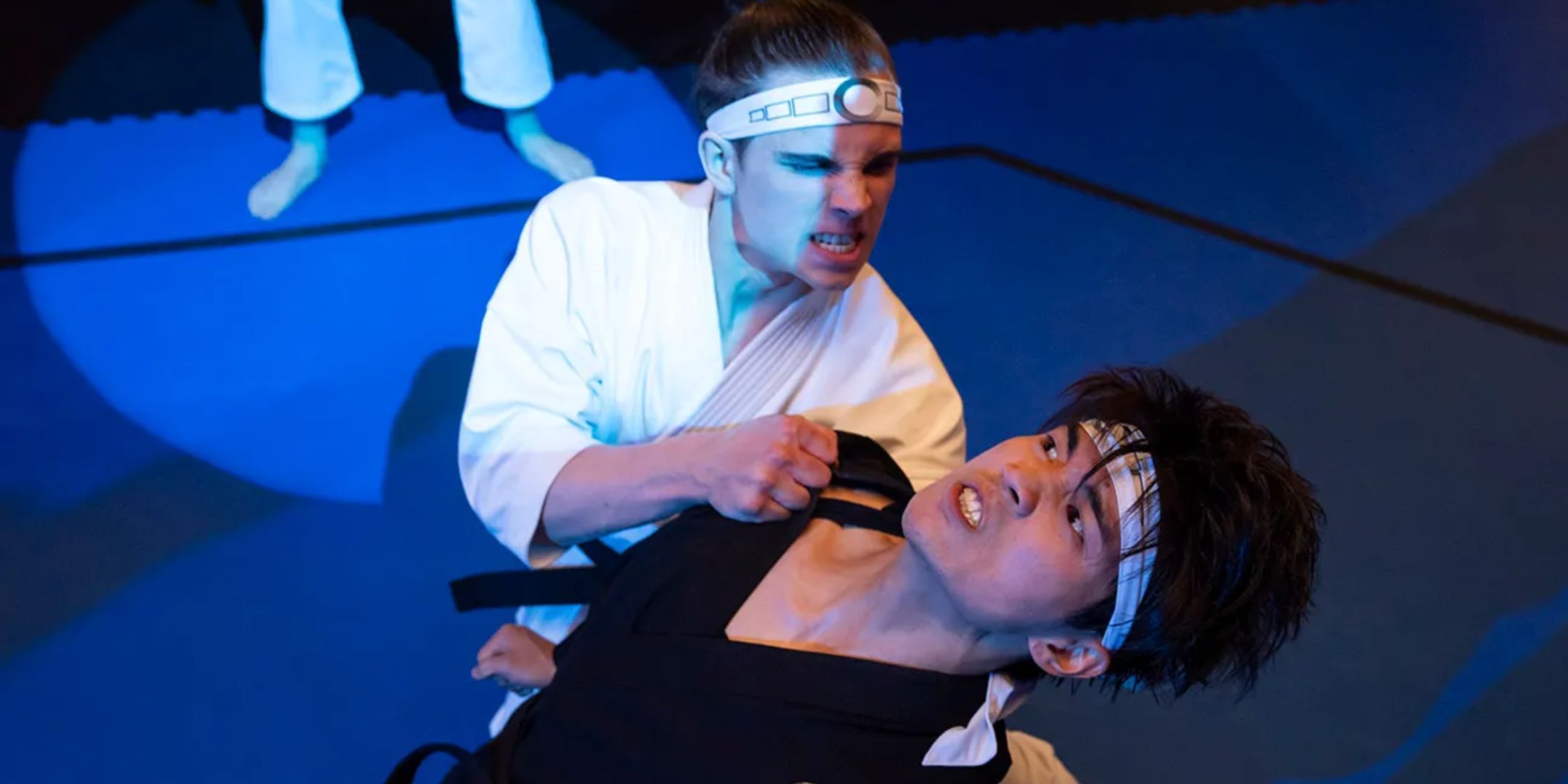 Image via Netflix
Image via Netflix
To veer into characters now, you have a lot of key characters you have to service, and I was really impressed by how you really do wrap up in a satisfying manner everybody's arc here, but of the bunch, was there any particular one that was the toughest to see through to the finish line, the one that maybe took the most workshopping to figure out where they needed to land?
HAYDEN SCHLOSSBERG: No, it was easy. [Laughs] I mean, the truth is, we care about all the characters. I would say the toughest, and I know fans will feel this, too, is Robby’s ending. Because not everyone can win and get the trophy. We just ultimately felt that you could still be fulfilled by the fact that Robby has a bright future, despite being in second place, that he's, in a sense, like a second Johnny Lawrence—this guy who didn't win in his final high school tournament, but unlike his father, is not going to go on a downward spiral because of all the good mentoring that happened along the way over six seasons. So, we liked that story but felt bad that we snapped his leg.
Wow, the way you redefine both losing and quitting in these last five episodes, I thought was very, very well done, and it's something we don't really see on screen very much at all.
Kwon’s Death “Shook Kreese to His Core”
“It was never going to be a full redemption.”
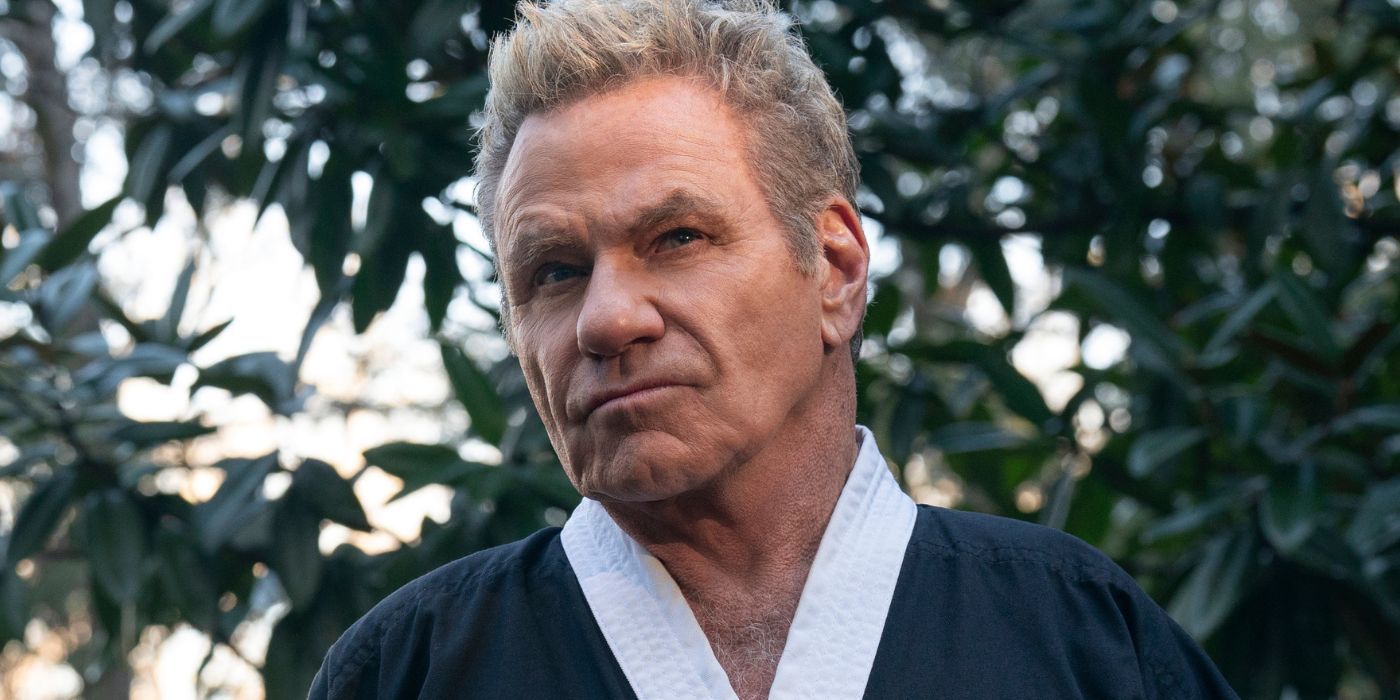 Image via Netflix
Image via Netflix
I did think you were going to say Kreese, though, because obviously a very hot topic of conversation every single step of the way was, can you redeem that character? Can you guys kind of walk me through the conversations you had in terms of figuring out the right balance to maybe give him enough of that but not excuse all of his actions?
HURWITZ: That was the balance from the beginning. We told Marty [Kove], and Marty probably let the cat out of the bag over the years.
HEALD: [Laughs] Nine hundred times. Lot of catch-and-kills out there.
HURWITZ: [Laughs] We told Marty early on that our long-term goal was to have some form of redemption for Sensei Kreese. It was never going to be a full redemption in every single way where he's living happily ever after, but it was really the events of the Sekai Taikai where he gets to see a student that he had for a very brief period of time and, in his most venomous state, ended up directing Kwon in a way that led to his death. That shook Kreese to his core.
We have shown in the series that Kreese had a heart early on in his youth, and he had a bad mentor. We always talk about the bad students/bad mentors. Master Kim made him the way that he was, and I think when it got late in life, he realized that he made some mistakes. He goes on his apology tour, and there's nothing greater than him having that moment with Johnny. Billy Zabka became a teenager again in that scene between Kreese and Johnny, and it wasn't a full forgiveness, but he was able to get Johnny back in the tournament, and he was able to see the two steps ahead because he knows Silver well enough that he was going to step in there and do everything it took to make sure that Johnny Lawrence got to have his victory moment.
I love a lot of scenes in your show—that might be one of my favorites of all time. The performances from both of them are just exquisite, above and beyond.
The Fight Between Kreese and Silver Was “One of the Most Unbelievable Victories”
Of all six seasons, this boat sequence proved to be the trickiest scene.
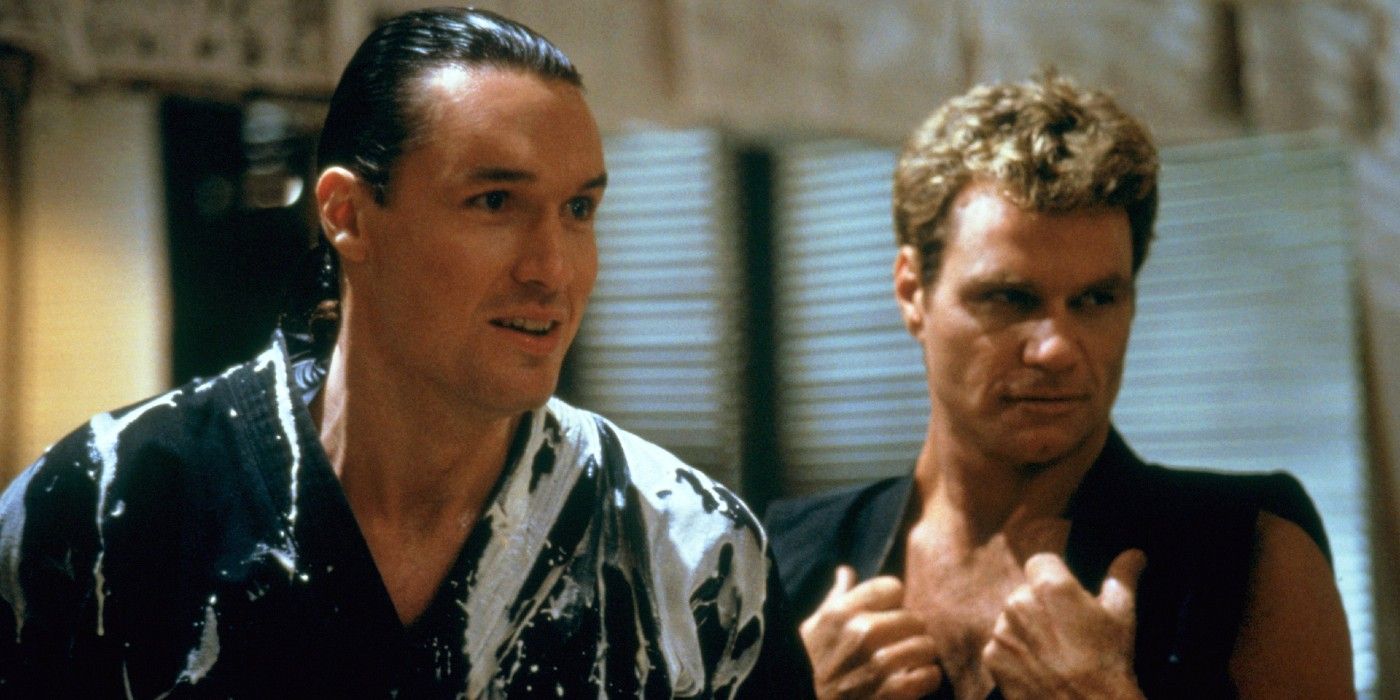 Image via Columbia Pictures
Image via Columbia Pictures
I love that moment. There are also a whole bunch of ambitious fight sequences in these final five episodes. Of all of the scenes—emotional, dialogue-heavy, or fights—which did you think was going to be the toughest to film, and ultimately, was it, or did a different one catch you by surprise?
HEALD: [Laughs] The boat! We were on a boat, and that's difficult in and of itself. Just getting that boat out to sea and being somewhere where you're allowed to have that boat and do what we needed to do and have drones in the air and have Marty Kove and Thomas Ian Griffith on the deck of that boat going at it, we didn't have a lot of time. That's the big thing on our show is there's not enough time. We write these things where you would shoot that scene for a week on a movie. We had an hour and a half for all of their dialogue and the full fight and any stunt action.
HURWITZ: That was our last day. That was the very last thing that we filmed.
HEALD: That was the last thing that we filmed as the sun was setting was that fight. It was as hard and almost as demoralizing as possible because as you're getting out to sea, you're seeing the sun just slowly set, and we hadn't shot anything yet. We had a big, emotional dialogue to film and then a very ambitious fight to shoot between these two titans of Cobra Kai that you want to end the way you want to end, and the fact that we got it was one of the most unbelievable victories of the show.
And it plays quite well in the finished product.
What’s the Status of a ‘Cobra Kai’ Spin-Off?
Cooks are in the kitchen!
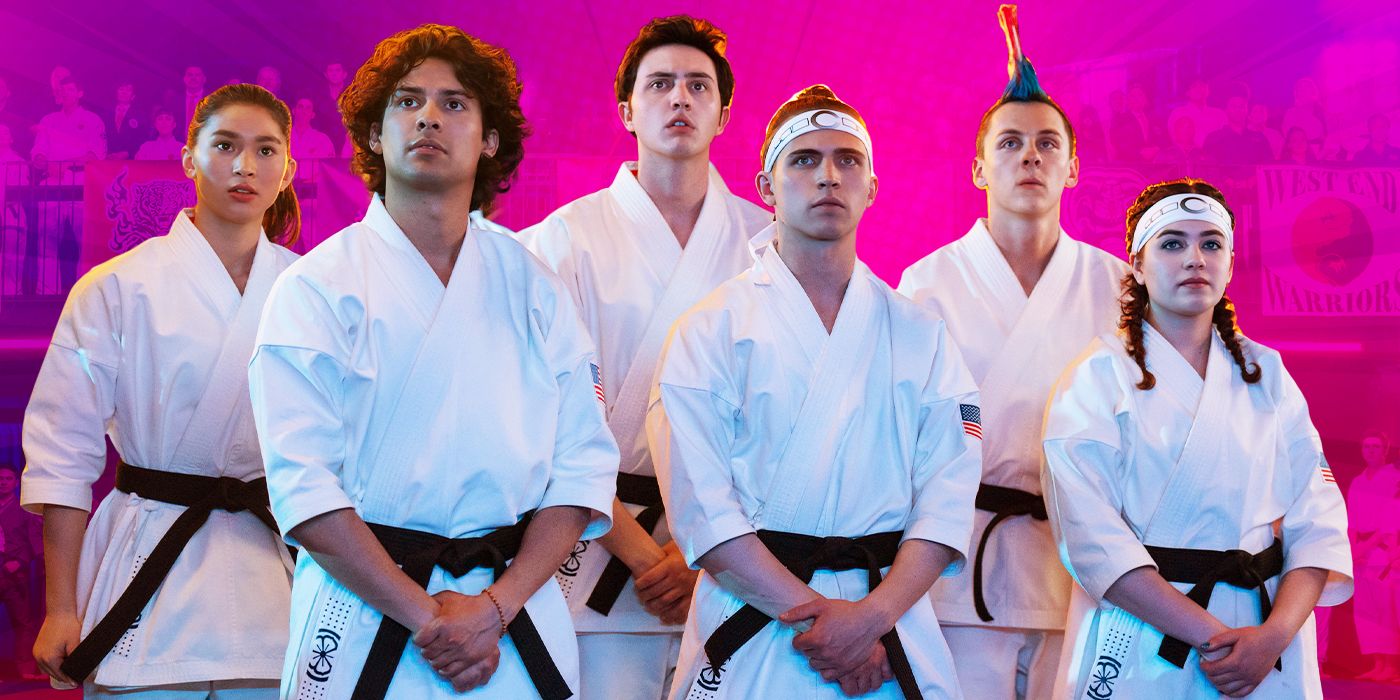 Image by Jefferson Chacon
Image by Jefferson Chacon
Here's the question you probably won't give me an answer to. Last we spoke, there wasn't much of an update on a spin-off series. Has anything changed at this point?
SCHLOSSBERG: There is nothing official to say regarding spin-offs other than we are working on them behind the scenes. Our Cobra Kai fan brains are always thinking of multiple possibilities, and we've been working on stuff. The hope is that there's something official to say at some point.
If I can’t get a concrete answer right now, that's the answer I did want to hear. Keep working towards it. You really did something special with this. I just can't believe after six seasons, it has stuck the landing so incredibly well. Congratulations!
All six seasons of Cobra Kai are available to stream on Netflix.
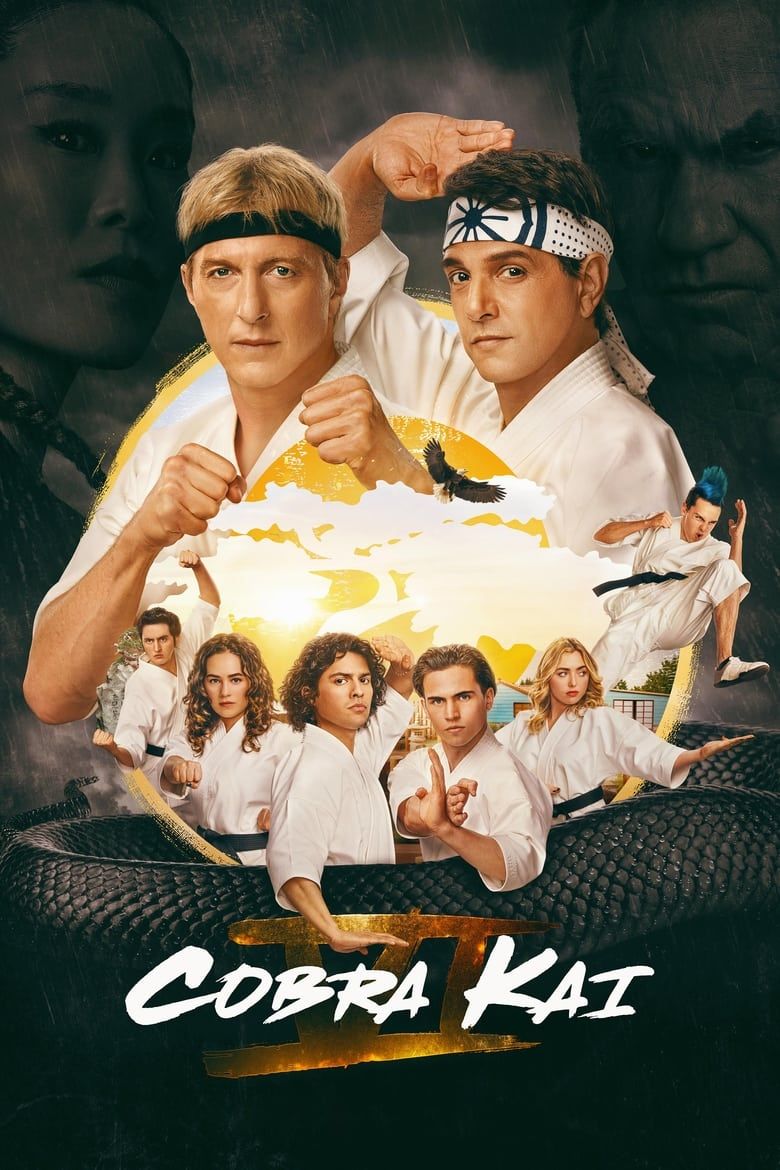
Cobra Kai
Release Date 2018 - 2024
Network Netflix, YouTube Premium
Showrunner Jon Hurwitz
Directors Hayden Schlossberg, Jon Hurwitz, Joel Novoa, Jennifer Celotta, Steven K. Tsuchida, Sherwin Shilati, Marielle Woods, Steve Pink, Lin Oeding, Michael Grossman
Writers Josh Heald, Ashley Darnall, Chris Rafferty, Bill Posley




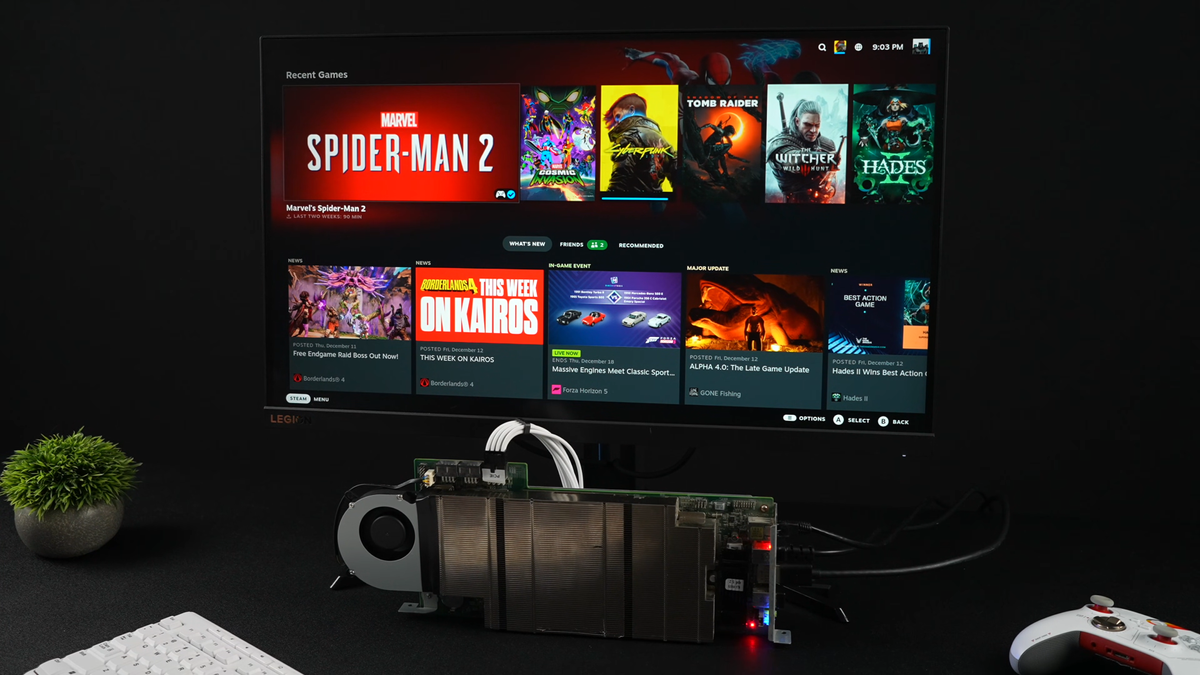
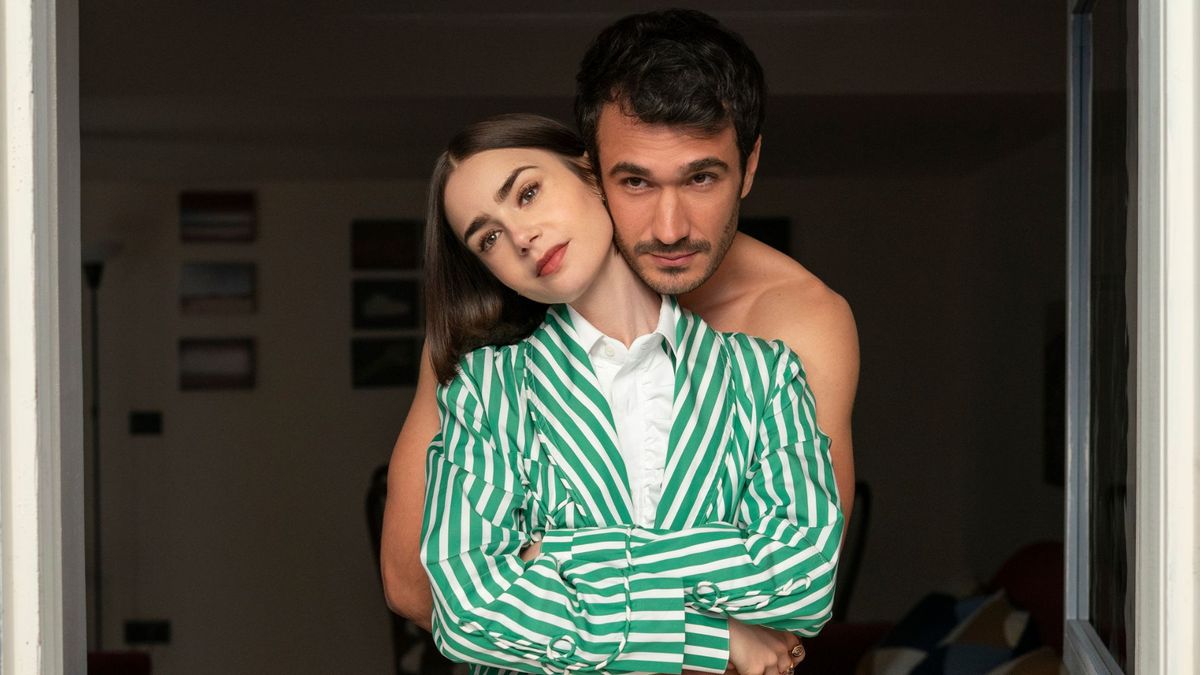

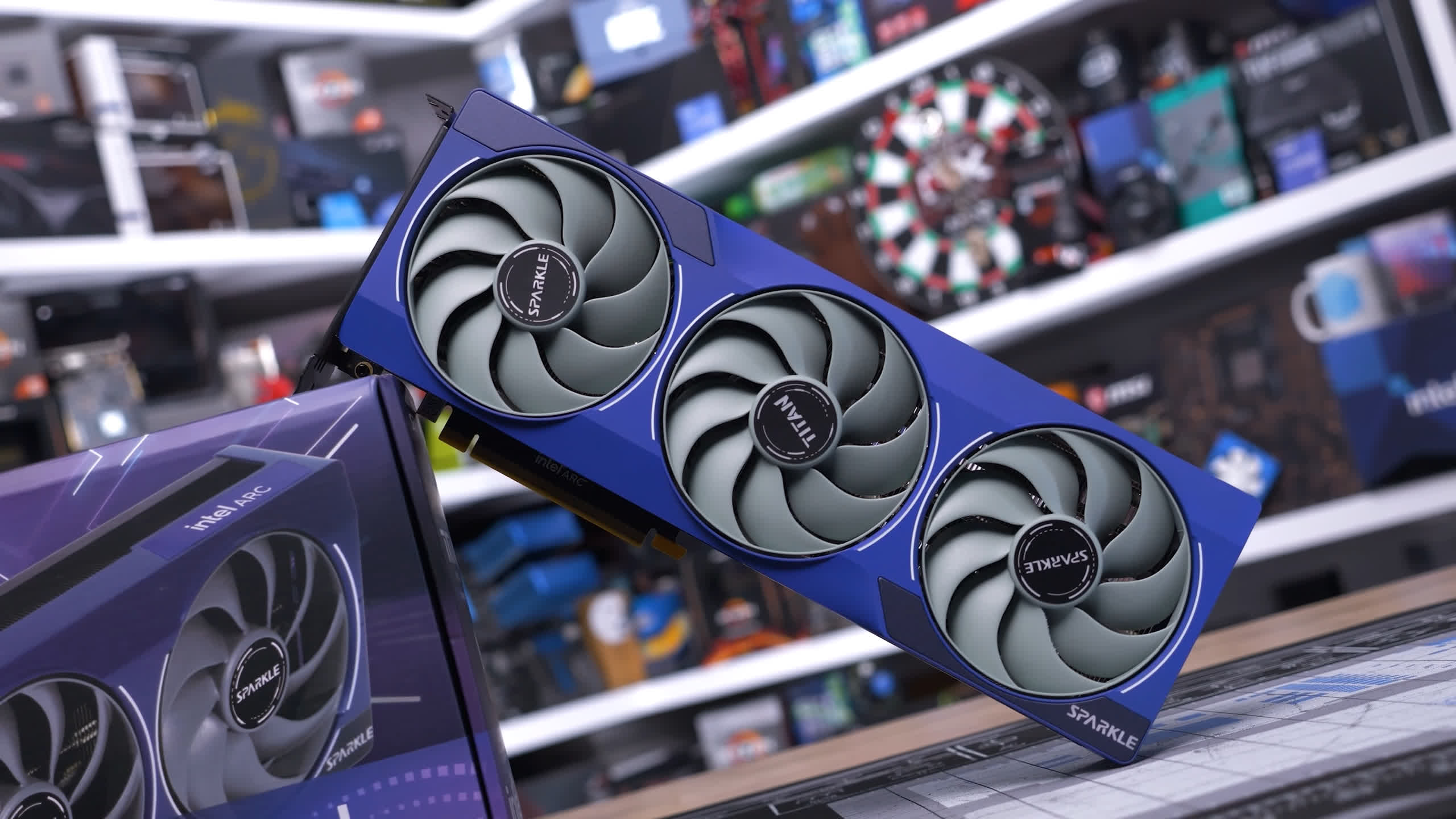

 English (US) ·
English (US) ·